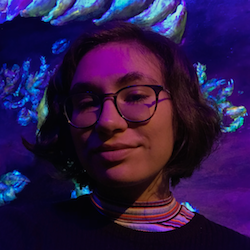Parents, Teens, and Online Privacy: New Survey Findings from Pew Research Center and Berkman Klein Center
81% of parents of online teens say they are concerned about how much information advertisers can learn about their child’s online behavior; 46% are “very” concerned
November 20, 2012
The Berkman Klein Center for Internet & Society and its Youth and Media Project are pleased to share a new report, the first in a series discussing issues of youth and privacy in collaboration with the Pew Research Center’s Internet & American Life Project. The Youth and Media Team has put together a fun video sharing data and findings from the report.
A full press release follows:
WASHINGTON (November 20, 2012) – Most parents of teenagers are concerned about what their teenage children do online and how their behavior could be monitored by others. Some parents are taking steps to observe, discuss, and check up on their children’s digital footprints, according to a new survey by the Pew Research Center’s Internet & American Life Project.
Among the survey’s key findings:
- 81% of parents of online teens say they are concerned about how much information advertisers can learn about their child’s online behavior, with some 46% being “very” concerned.
- 72% of parents of online teens are concerned about how their child interacts online with people they do not know, with some 53% of parents being “very” concerned.
- 69% of parents of online teens are concerned about how their child’s online activity might affect their future academic or employment opportunities, with some 44% being “very” concerned about that.
- 69% of parents of online teens are concerned about how their child manages his or her reputation online, with some 49% being “very” concerned about that.
- Some of these expressions of concern are particularly acute for the parents of younger teens; 63% of parents of teens ages 12-13 say they are “very” concerned about their child’s interactions with people they do not know online and 57% say they are “very” concerned about how their child manages his or her reputation online.
“There is a growing policy discussion about how government should act in an environment where personal information—about both children and adults—is widely collected, analyzed and shared as a new form of currency in the digital economy,” said Mary Madden, Research Associate for the Project and a co-author of the report. “Parents are anxious about a wide range of online risks for their children, but it is particularly striking that their current level of worry about data collection by advertisers meets or exceeds other concerns about their child’s online activity.”
A notable number of parents, especially parents of younger teens, are taking steps to act on these concerns:
- 59% of the parents of teen users of social networking sites (SNS) have talked with their child because they were concerned about something posted to their profile or account. (That translates to 46% of parents of all online teens.)
- 39% of the parents of teen users of SNS have helped their child set up privacy settings for a social networking site. (That translates to 31% of parents of all online teens.)
In addition to such direct interventions, some parents are monitoring their children on family computers and in online searches:
- 50% of parents of online teens (not just the teens who use SNS) have used parental controls or other means of blocking, filtering, or monitoring their child’s online activities—a number that has remained almost unchanged since last year.
- 42% of parents of online teens have searched for their child’s name online to see what information is available about him or her.
- In addition to these activities, 44% of parents of online teens say they have taken the step of reading the privacy policies of websites or social networking sites that their child is using.
The survey also finds that a growing number of parents are becoming social media users themselves:
- 66% of all parents who have a child between the ages of 12-17, say they use a social networking site, up from 58% in 2011.
- There is great variation according to the parent’s age; 82% of parents under age 40 say they use SNS, while only 61% of parents over age 40 use the sites.
- Mothers and fathers are equally likely to use SNS, but parents who are college-educated exhibit higher levels of engagement with social media.
While parents may forge connections with their teens on social media in order to passively observe them, many are also actively engaging with their children and making their presence known. Half (50%) of parents who use social media (and who also have teens who use the sites) say they have commented or responded directly to something that was posted to their child’s profile or account. Mothers and fathers of children of all ages and across all demographic groups are equally as likely to engage with their child’s profile in this way.
“Teens, in turn, have mixed feelings about being friends with their parents on social networking sites like Facebook. Some teens like the fact that they are friends with their family members. Other young users prefer not to friend their parents, but do it anyway because it is expected from them. And yet others keep their profiles secret or restrict parents’ access to information,” said Sandra Cortesi, Director of the Youth and Media Project at the Berkman Klein Center and a contributor to this report.
The findings of the study are detailed in a new report called, “Parents, Teens and Online Privacy” that is the result of a collaboration between the Pew Internet Project and the Berkman Klein Center for Internet & Society at Harvard University. The data are based on a nationally representative phone survey of 802 parents and their 802 teens ages 12-17, conducted between July 26 and September 30, 2012. Interviews were conducted in English and Spanish and on landline and cell phones. The margin of error for the full sample is ± 4.5 percentage points.
This report includes quotes gathered through a series of exploratory in-person focus group interviews about privacy and digital media conducted by the Berkman Klein Center’s Youth and Media Lab between May and December 2011. The team conducted 16 focus group interviews with roughly 120 students.
About the Pew Research Center’s Internet & American Life Project
The Pew Research Center’s Internet & American Life Project is one of seven projects that make up the Pew Research Center, a nonpartisan, nonprofit “fact tank” that provides information on the issues, attitudes and trends shaping America and the world. The Project produces reports exploring the impact of the Internet on families, communities, work and home, daily life, education, health care, and civic and political life. The Project aims to be an authoritative source on the evolution of the Internet through surveys that examine how Americans use the Internet and how their activities affect their lives.
About the Berkman Klein Center for Internet & Society
The Berkman Klein Center for Internet & Society at Harvard University is a research program founded to recognize, study, and engage the most difficult problems of the digital age and to share in their resolution in ways that advance the public interest. Founded in 1997, through a generous gift from Jack N. and Lillian R. Berkman, the Center is home to an ever-growing community of faculty, fellows, staff, and affiliates. Fundamental to its work is the study of the relationship between digital technologies and democratic values, including civic participation, access to knowledge, and the free flow of information. More information can be found at http://cyber.law.harvard.edu.
Media contacts
Mary Madden: mmadden@pewinternet.org and 202-419-4515
Access the survey and findings via the Pew Research Center’s website.










